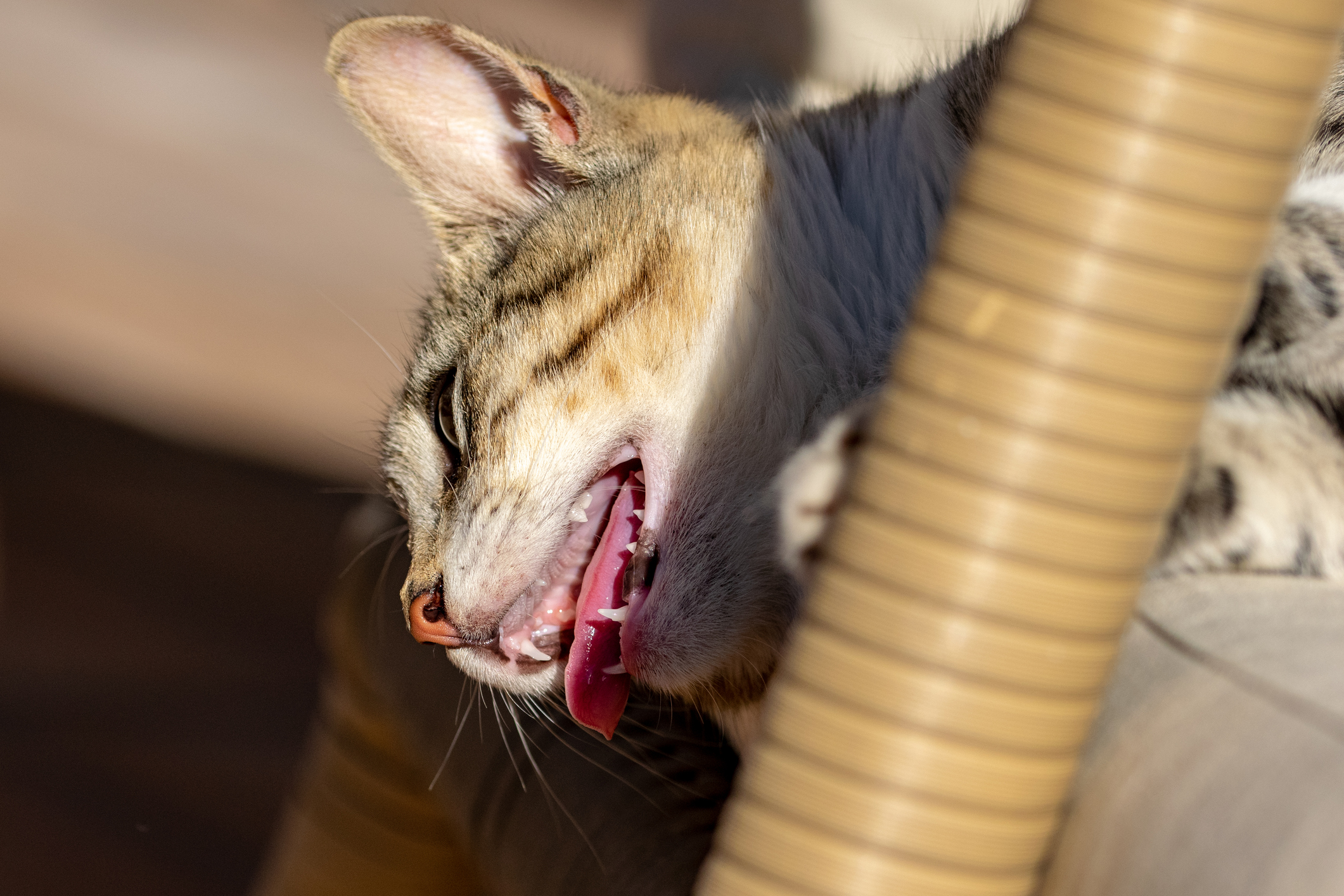Panting in Cats: What Does It Mean?
Doctor of Veterinary Medicine

While efforts are made to answer all questions as quickly as possible, if an immediate answer is required or if your pet is in need of urgent or emergency care, contact your pet's veterinarian immediately.
Doctor of Veterinary Medicine

You will receive an answer from Dr. Lindsay and our vet/tech team as soon as possible, usually the same day.
All answers are provided for informational or educational purposes only, and are intended to be a supplement to, and not a substitute for, the expertise and professional judgment of your pet's veterinarian.
It may be necessary to consult your pet's veterinarian regarding the applicability of any opinions or recommendations with respect to your pet's symptoms or medical condition.
CloseDoctor of Veterinary Medicine

An error has occurred, please reload the page and try again.
CloseDoctor of Veterinary Medicine

While efforts are made to answer all questions as quickly as possible, if an immediate answer is required or if your pet is in need of urgent or emergency care, contact your pet's veterinarian immediately.
There is no answer related to your question

Have you ever caught your cat panting? While this behavior is much more common in dogs, cats, too, may pant at times. Just like dogs, cats can pant to cool down in hot weather or after intense exercise. However, panting can sometimes indicate that your cat is experiencing a health issue. Read on to learn what it can mean and when you should worry if your cat is unexpectedly panting.
Do Cats Pant Like Dogs To Stay Cool?
Dogs pant as their primary way to regulate their body temperature in hot weather. The evaporation of moisture from their tongue helps dissipate heat while breathing more heavily helps regulate their body temperature through increased circulation.
While cats occasionally pant when hot or overexerted, it's much less commonly seen in our feline family members. A cat's primary way of staying cool is grooming. As they lick their fur, saliva evaporates off their skin and coat, helping to dissipate heat. That's why you might notice your cat grooming more often than usual while basking in the sun on a hot day.
But you might catch your cat panting when they're especially overheated or overexerted after a strenuous play session. If your cat often pants after playing, it's usually not a cause for concern. They'll likely resume normal breathing after a few minutes.
In extreme heat, though, panting could mean your cat is at risk for heat exhaustion or heat stroke.
Cool your cat down as quickly as possible by applying a cool compress to the pulse points at their armpits and inner thighs. Seek urgent veterinary care if panting does not subside or if your cat shows any concerning signs like trouble breathing, lethargy, or changes in the color of their gums or tongue.
Panting in Cats May Indicate Trouble Breathing
Unexplained panting can indicate that your cat is in pain or may be having trouble breathing. Labored breathing can point to asthma or heart issues.
If your cat is panting and they have not been playing recently, have not been out in the heat, and otherwise have no reason to be particularly stressed, they may be struggling to breathe or circulate oxygen properly throughout their body.
The inability to get enough oxygen should always be taken seriously. Seek emergency veterinary care if you suspect your cat may be having trouble breathing. Signs of trouble breathing, or hypoxemia (low blood oxygen) include lethargy, bluish gums, and a rapid heart rate.
When Panting in Cats Points to Anxiety
Does your cat ever pant in the car, at the vet, or otherwise during a potentially stressful situation? It's not uncommon for cats to pant when they're stressed.
You can manage anxiety in cats with calming treats and Feliway. Your veterinarian can prescribe an anxiety medication if your cat experiences chronic anxiety or extreme stress.
A short bout of panting due to anxiety is generally not a cause for concern, but if it persists or is accompanied by other signs of pain or distress, seek emergency veterinary care.
Is Panting Normal in Cats?
Some cats love to play hard and habitually pant for a few minutes after an intense play session. For others, a sudden bout of unexplained panting may point to stress, heart issues, or trouble breathing and may indicate that your cat needs veterinary attention.
While cats are notorious for hiding signs of pain, knowing their quirks and what to watch for is essential to keeping them happy and healthy.
VISION
Every pet deserves to live a long, happy, healthy life.
 Swipe
Swipe


















